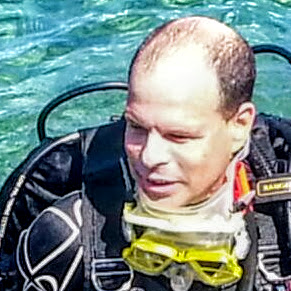Prof. Giti Yahel – Ruppin Academic Center
Member of the Scientific Committee
Member of the Educational Committee
Member of the Secondary Scientific Committee: Infrastructure
Research Areas: Biological oceanography and marine biology
Email Yahel@ruppin.ac.il
Additional information: personal website
Vision for developing Mediterranean research:
I am interested in the diverse processes that link the seafloor to the overlying ocean. These processes range from feeding mechanisms of individual suspension feeders such as sponges and bivalves through the behavior pattern of ground fish and migratory zooplankton to the interplay between hydrodynamics and the benthos (organisms that inhabits the bottom of the sea). Fieldwork and the development of new methods for underwater studies are major themes in our work.
Current Mediterranean research:
- Environment changes and mass mortality events: Underlying causes and mechanisms in Mediterranean gorgonians and sponges (En-Changes)
- Study of the deep Israeli continental margins of the red and Mediterranean seas in light of local and global changes (ROV)
- Rehabilitation of the micro estuaries along the Mediterranean coast of Israel
- Examining size independent biological filtration at the submicron range
- Interactions between marine picoplankton and mucous-net filter feeders
- Ruppin Estuarine and Coastal Observatory (RECO)- Long term monitoring of the Alexander Estuary and the nearby sea
- The role of estuaries in controlling pollution of the Mediterranean Sea: The Alexander River as a case study
- Developing new methodologies for quantifying biological sediment resuspension in the sea and for studying its dynamics
- Mediation of biological filtration in marine suspension feeders: significance of intrinsic and extrinsic factors
- Assessing the role of invasive bivalves in controlling ecosystem dynamic as a tool for better management of Israeli Marine Reserves and Marine Protected Areas
- Role of sponges in Biogeochemical benthic-pelagic coupling: carbon and nutrient Exchange between the Coraligenous and adjacent
- Science based management of the Kishon Estuary
Current research:
Nutritional ecology of suspension feeders Capturing particles suspended in the water is a unique feeding strategy for aquatic animals. our studies focus on measuring the metabolism, diet composition, feeding preferences, and feeding rates of marine suspension feeders. I am particularly interested in developing underwater (in situ) methods which facilitate the study of undisturbed animals in their natural environment
Read more…
Sediment resuspension by fish Benthic (ground) fish resuspend large amount of sediments while foraging and seeking for shelter. We discovered that fish activity alone could maintain a layer of turbid water near the bottom (nepheloid benthic layer), enhance the transport of nutrients and benthic oxygen demand, and considerably reduce organic carbon sequestration. Currently, we are developing tools that will allow us to quantify these processes and understand their effects in different marine habitats. Read more…
Benthic-pelagic coupling
Benthic organisms are dependent on hydrodynamics and other processes at the water column for every aspect of their life history. In many cases, the activity of benthic communities can also control water column processes. We are using a variety of methods to quantify these processes in the field. Read more…
Ruppin Estuarine and Coastal Observatory (RECO)
We are studying the Alexander estuary and its effect on the sea to enable science-based decision-making. Our aim is to help improve the status and health of the estuary’s ecosystem by studying the complex annual dynamics, processes and interactions between and among the ecosystem’s components and its effect on the adjacent sea. Discover more…



